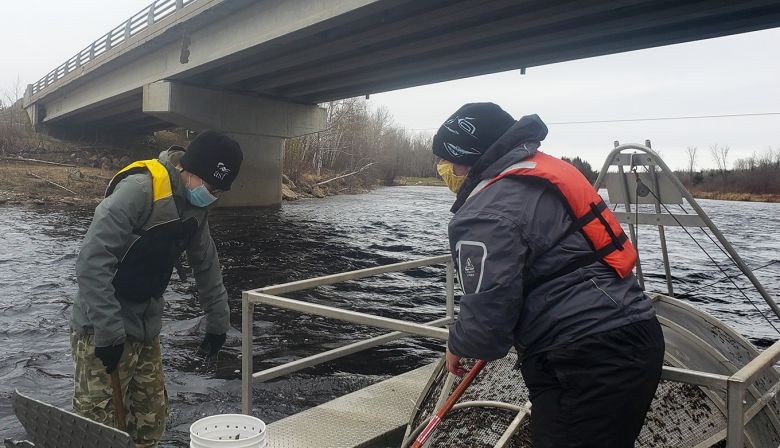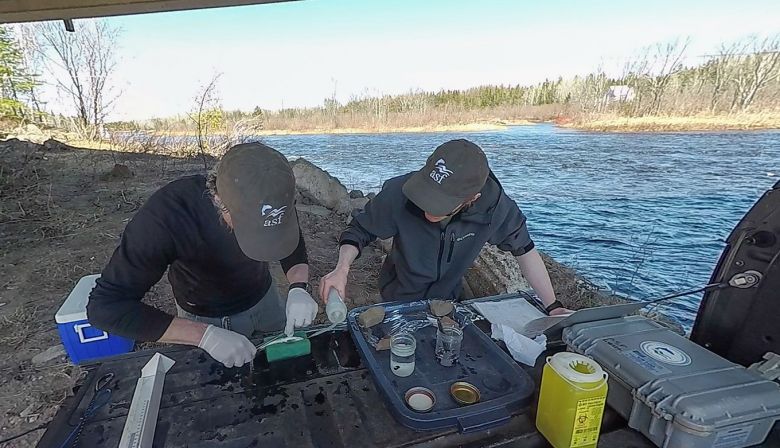
Subscribe & stay up-to-date with ASF

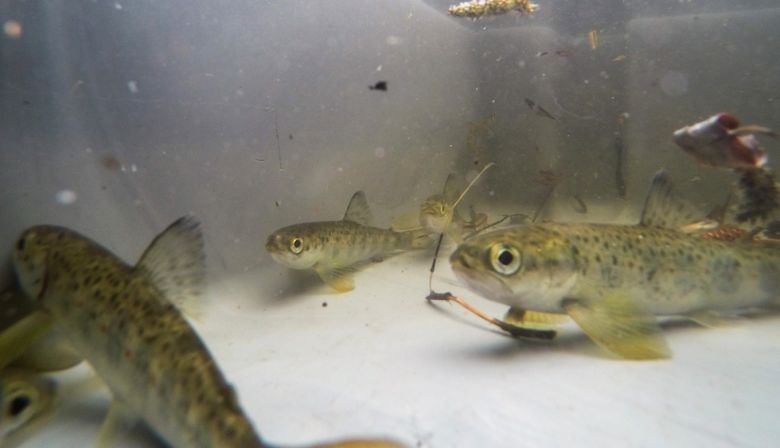
ASF and the Miramichi Salmon Association have been tagging juvenile Atlantic salmon in the Miramichi watershed since 2003, providing a rare, long-term data set on movement and survival. As coronavirus spread and activities were halted by public health officials, there was genuine concern that no smolt would be tagged on any of ASF’s study rivers in 2020.
Thankfully, in New Brunswick, a combination of good luck and good management has led to very few cases, no deaths, and a progressive easing of restrictions.
Last week, ASF’s Vice President of Research and Environment and his son Evan, a high school senior, took their social bubble on the road to help ensure the world’s longest unbroken record on Atlantic salmon migration doesn’t fall victim
Evan Carr sent back these notes from the field:
Over the past week, we completed the deployment of acoustic receiver arrays throughout the Miramichi River system – from above the head of tide to the outer reaches of the bay.
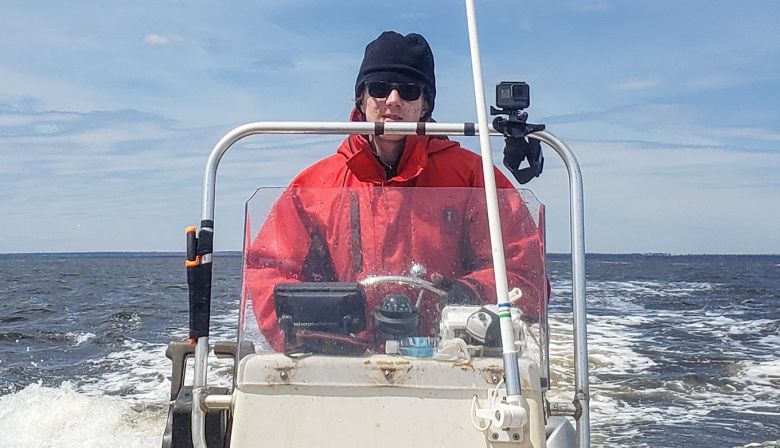
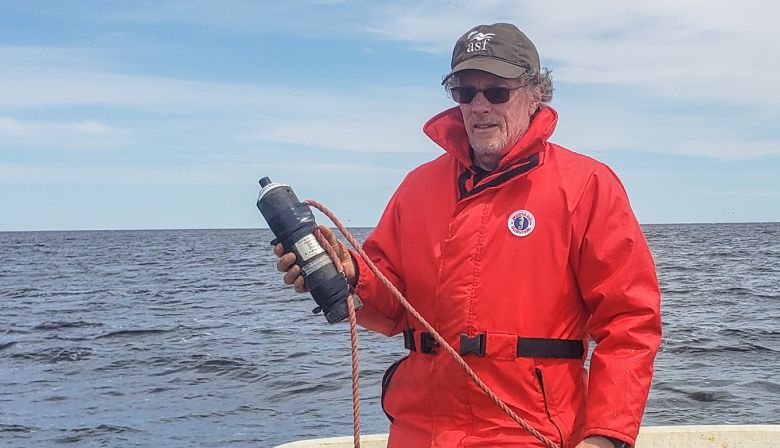
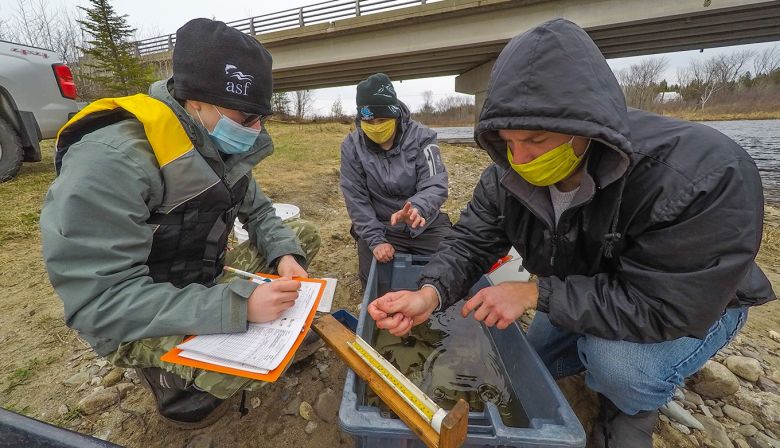
Since May 19, the weather has warmed and the water has cooled thanks to melting snow in the headwaters. These low water temperatures have delayed the smolt run in the Southwest Miramichi, where we plan to acoustically tag another 80 smolts at the International Paper smolt wheel near Rocky Brook.
Tagging at that location is anticipated to occur over the coming weekend and into next week. In the meantime, we are assisting the MSA with smolt enumeration at the Little Southwest Miramichi and Northwest Miramichi smolt wheels. This effort will help provide an estimate of the number of smolt leaving the river system.
